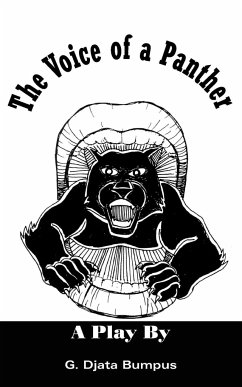This play emanates from the centuries-old group struggle of AfricanAmerican people to gain equality, dignity, and justice here in North America. The story line revolves around a very small, teenager named Masai (pronounced Muh-si'') who is a member of the Black Panther Party. While finding his way through the obstacles of life, Masai maintains a vision for the future of his people (cultural group). It all begins on one summer day, in the year 1970, in a place called Anyghetto, USA. Masai was "out on the block" selling Panther papers. There, the young Panther had an encounter with a trio of equally young women that would eventually lead to part of his life''s maturation process, both personally and politically. After soliciting one of the young women to buy a Panther paper (Black Panther Party newspaper), Masai is carefully drawn into a web of deceit that threatens his right to "life, liberty, and the pursuit of happiness." Nevertheless, as so many others before him have had to do, Masai uses his imagination, creativity, and daring in order to sustain a life for him and those whom he deeply loves (which includes his people.) Several aspects of this play stand out and distinguish this work from previous fare regarding the Panthers. They are: 1) The violent side of Panther life is not pertinent to the story. 2) The actual culture of the organization, which was new to the AfricanAmerican experience, but which grew out of said experience, is presented through songs as well as acting. 3) Each actor is empowered and no actor has to debase himself or herself, in order to "do a part" (acting). 4) The relationships between Panthers, their families, friends, and community are experienced. 5) In certain instances, unwittingly, the audience itself becomes a part of the cast. Finally, while there are a number of issues in this work, perhaps, the most significant point is that "culture conceals more than it reveals". In other words
Hinweis: Dieser Artikel kann nur an eine deutsche Lieferadresse ausgeliefert werden.
Hinweis: Dieser Artikel kann nur an eine deutsche Lieferadresse ausgeliefert werden.








